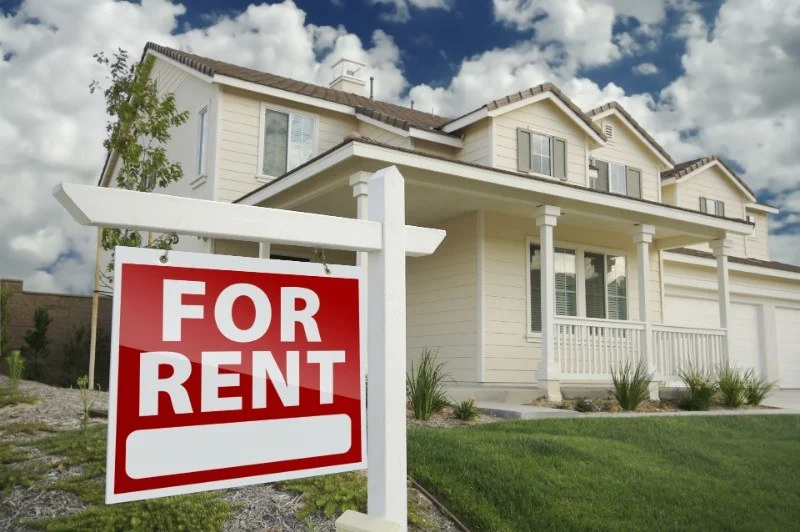Rent
Should you buy a home or keep renting?
Should you buy a home or keep renting

For a long time, conventional wisdom seemed to be that you grow up and buy a home because that’s just what you do. But lately, people are realizing that it isn’t always the smartest financial move. Obviously, the housing crisis has a lot to do with that—it’s made people question the standard assumption that homeownership equals financial stability.
Homeownership isn’t a good or bad idea on its own. It has everything to do with your own situation. Sometimes, buying a home is the smart thing to do; other times, it really isn’t. Whether or not it’s smart for you will depend on a few different factors. Here’s what you should keep in mind.
The biggest argument for owning a home is that it’s an “investment.”
Over the past 100 years, home prices have only grown at a compound annual rate of 0.3%, adjusted for inflation. The S&P 500, on the other hand, has had an annual return of 6.5%. That’s a big difference.
While that single real estate asset might help protect you against inflation, a well-balanced stock and bond portfolio seems to be a better investment. But a lot of people’s portfolios are mostly made up of their home value. You wouldn’t put 80 percent of your portfolio in a bond simply to protect against inflation (unless maybe you were nearing retirement) so why would your home make up that same amount? That’s the argument against buying a home as investment. The argument for buying a home as investment is clear: Tax Advantages, Cash Flow, Hedge Against Inflation, Leverage Funds, Equity, Appreciation.
Decide How Much You Can Afford In deciding whether you can afford to buy, you’ll have to figure out how much home you’re planning on buying in the first place. One rule of thumb for figuring out this number: your home should cost no more than 2.5 times your salary. Of course, this just gives you a ballpark figure. It doesn’t consider your net worth.
Weigh the Opportunity Cost of Renting Versus Buying. Your home is the best investment, in the end, it’s all yours. Even in times of inflation, at the end of the day, you own it, and that’s worth something. When you rent, you own nothing—the money is given to someone else. So lots of people argue that you should own a home because one day, you’ll pay that home off and it’ll be yours, rather than continuing to pay rent for the rest of your life.
In conclusion, Real Estate investing has proven time and time again that it can serve as a wealth-building vehicle for savvy investors.
Selling Your Home in Florida
Whether you are downsizing and empty nest or you’ve outgrown a starter home, selling your house or condo is complicated and has legal ramifications. Although the steps involved in selling a home are similar regardless of where you live, Florida’s real estate laws and practices are unique in some respects.
Becoming familiar with the process early will help you avoid problems later. Here’s an overview of the basics – from working with us to making legally-required disclosures to closing the deal.
It is always advisable to work with a licensed real estate broker or agent. We will help price your house or condo, based on comparative market analysis, effectively market your house or condo to prospective buyers. Negotiating with buyers is a key ingredient.
When you are ready to sell, you sign a “Listing Agreement” giving us the right to market and handle the sale of your house or condo.
A Listing Agreement usually covers the following:
- The real estate broker/agent commission that you the seller will pay. This typically ranges from 6 to 7% of the house or condo sales price, and is split between us and the buyers broker/agent if there is one.
- The type of listing, commonly used in Florida is the exclusive right to sell listing, which you sign. Which also obligates you to pay the commission regardless of who brings the buyer. Other arrangement are possible.
- Duration of listing. In all cases, the listing agreement will cover a set amount of time, such as 6 months.
- Listing price, your broker/agent will recommend the appropriate price based on the comparing prices of similar homes or condos. We use our experience and data found in a Multiple Listing Service (MLS).
- Items included or not included in the sale.
- Duties and obligations of you the seller and us. Your agreement will spell out how we will list or market your house or condo, what type of insurance you must maintain on the property, and what disclosures you must make.
Making Real Estate Disclosures in Florida State Law (Johnson v. Davis, 480 So 2d 625 (Fla.1985)) requires sellers to disclose any facts or conditions about their property that have a substantial impact on the value of the property and that others cannot easily observe. To aid you the seller in making all required disclosures, we will help in this process, this disclosure form includes details on the property, including:
- Contents such as specific appliances, and whether or not they need repair.
- Defects in the electrical and other house systems.
- Conditions such as termites or asbestos, and
- Homeowners’ association fees, deed restrictions, and other specific details of the property.
- In addition, if your house was built before 1978, you must comply with Federal Title X disclosures regarding lead-based paint or hazards.
Working with a Lawyer: Unlike some states, Florida does not require that sellers involve a lawyer in the house or condo selling transaction. Even if it’s not required, you may decide to engage a lawyer at some point in the process. It’s up to you. ‘
